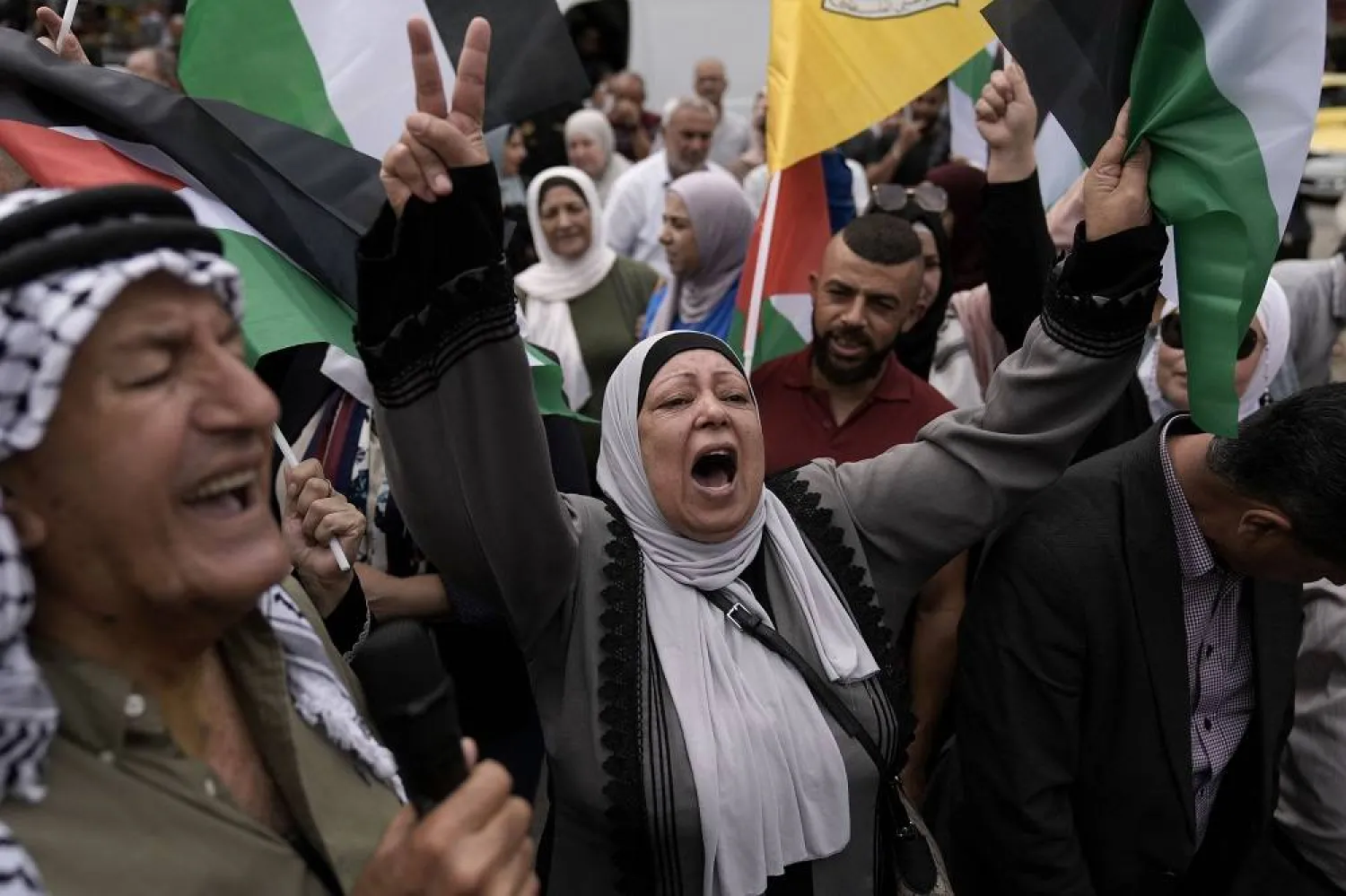As Israel declared war on Hamas and pounded Gaza following Saturday's devastating attack by the movement, violence has risen in the occupied West Bank, risking escalation after more than a year of continuous flare-ups.
Israeli security forces have killed at least 27 Palestinians during clashes in the West Bank since Saturday, as Palestinian factions called on people in the Palestinian territory to join the fight against Israel's occupation.
On Wednesday, three Palestinians were shot dead by Israeli security forces and masked Jewish settlers in Qusra village near the northern West Bank city of Nablus, the Palestinian Foreign Ministry said, after the Israeli army said it was supplying licensed citizens with thousands of firearms "to bolster defense systems" across the country.
The Israeli military has said it is prepared for an escalation in the West Bank and its forces have been on high alert, carrying out arrests and thwarting possible attacks.
"Anyone who challenges us in Judea and Samaria will be met with huge force," military spokesman Rear Admiral Daniel Hagari said this week, using Jewish biblical names for the West Bank.
By Wednesday, military checkpoints remained closed and roads in several parts of the West Bank were blocked with mounds of dirt, restricting movement.
After hundreds of thousands of Palestinians were forced out of their homes in the 1948 war surrounding Israel's creation, Palestinians have sought an independent state in the West Bank, East Jerusalem and Gaza.
That prospect seems as far away as ever amid expanding Israeli settlements on Palestinian land, cutting communities from each other, and a freeze in US-sponsored negotiations.
Human rights groups have said Israeli authorities have systematically repressed Palestinians for decades in policies that amount to apartheid and since 2007 have imposed a crushing land, air and sea closure on Gaza's population.
'Israel is our enemy'
The Palestinian Authority (PA), which exercises limited governance in areas of the West Bank, is led by the Fatah faction, a rival to Hamas, which pushed Fatah out of Gaza after a brief conflict in 2006-07. However, PA leaders have expressed sympathy with Gaza in the war with Israel.
"Israel is our enemy and occupier and it is our people's right to defend themselves," said Palestinian Prime Minister Mohammad Shtayyeh at a government meeting on Monday, even as several Western backers of the PA considered suspending aid.
The Palestinian Foreign Ministry, which has repeatedly raised the danger of increased assaults on Palestinians waged by armed Jewish settlers, warned against supplying settlers in the West Bank with more arms amid surging violence, describing it as a provocation that would "blow things up in the West Bank".
Five minors were among the deaths since Saturday, Palestinian officials said, adding that more than 130 Palestinians had been wounded, many in confrontations with the military across the West Bank. At least one of the people killed was claimed by an armed Palestinian group.
With uncertainty growing around who will replace the PA's unpopular octogenarian president, Hamas has been making efforts to expand its influence in the West Bank.
Since the movement launched the deadliest Palestinian militant attack on Israel in the country's 75-year history, it has repeatedly called on Palestinians in Jerusalem and the West Bank to join the fight and resist occupation.
Despite entrenched political divides, President Mahmoud Abbas' Fatah party, which dominates the PA's institutions in the West Bank, said Palestinians outside the coastal enclave should also resist Israel's decades-old occupation and confront Israel's military.
Violence in the West Bank had already been surging, with stepped up Israeli military raids, settler assaults on Palestinian towns and a spate of Palestinian attacks targeting Israelis. This year's Palestinian death toll until Saturday was over 220 and at least 29 people in Israel had been killed, according to UN records.









